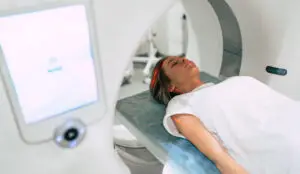Many of the most important risk factors for breast cancer are beyond your control, such as age, family history, and medical history. However, if you come from a family that has a history of breast cancer or you have inherited BRCA1 or BRCA2 gene mutations then you are at a higher risk of getting breast cancer. Despite this, some women will get breast cancer even without any other risk factors that they know of. We have compiled a list of breast cancer risk factors below, make sure to review it and speak to your doctor about any concerns you may have. You can also learn more about breast cancer here.
Risk Factors Associated with Breast Cancer
Age
The risk for breast cancer increases as you get older. Most patients are diagnosed after turning 50 years old. It is important to note though that this does not mean that you can’t get breast cancer at a young age.
Weight
Having more fat tissue means having higher estrogen levels, which can increase breast cancer incidence.
Race
Women who are White have the highest likelihood of developing breast cancer. Black, Asian, Hispanic, and Native American women have a lower risk of developing and dying from breast cancer. While White women are slightly more likely to develop breast cancer than Black, Hispanic, and Asian women, Black women are more likely to develop more aggressive, more advanced-stage breast cancer that is diagnosed at a young age. Unfortunately, minorities are still more likely to die of breast cancer.
Family history of breast cancer
Your risk increases if your mom, sister, or daughter have or have had breast cancer.
Dense breasts
Dense breasts mean that you have more connective tissue than fatty tissue. When you have dense breasts it can sometimes be harder to see tumors during yearly mammograms.
Inherited gene mutations
Women who have inherited certain gene mutations, such as the BRCA1 and the BRCA2 gene.
Menstruation history
Early menstrual periods before age 12 and starting menopause after age 55 expose women to hormones longer.
Estrogen exposure
Exposure to estrogen over long periods of time, without any breaks, can increase the chance of getting of breast cancer.
Previous radiation therapy
Women who had radiation therapy to the chest or breast as a young adult as treatment for another cancer significantly increases breast cancer risk later in life.
DES exposure
Women who took a medication to prevent miscarriages between the 1940s to the 1960s called DES (diethylstilbestrol), have a slightly increased chance of getting of breast cancer.
Outcomes4Me provides FDA-approved treatment guidance for breast cancer including Stage I through to metastatic diagnoses. If you would like detailed information on your treatment options, please start the diagnosis survey below or download the Outcomes4Me app.



